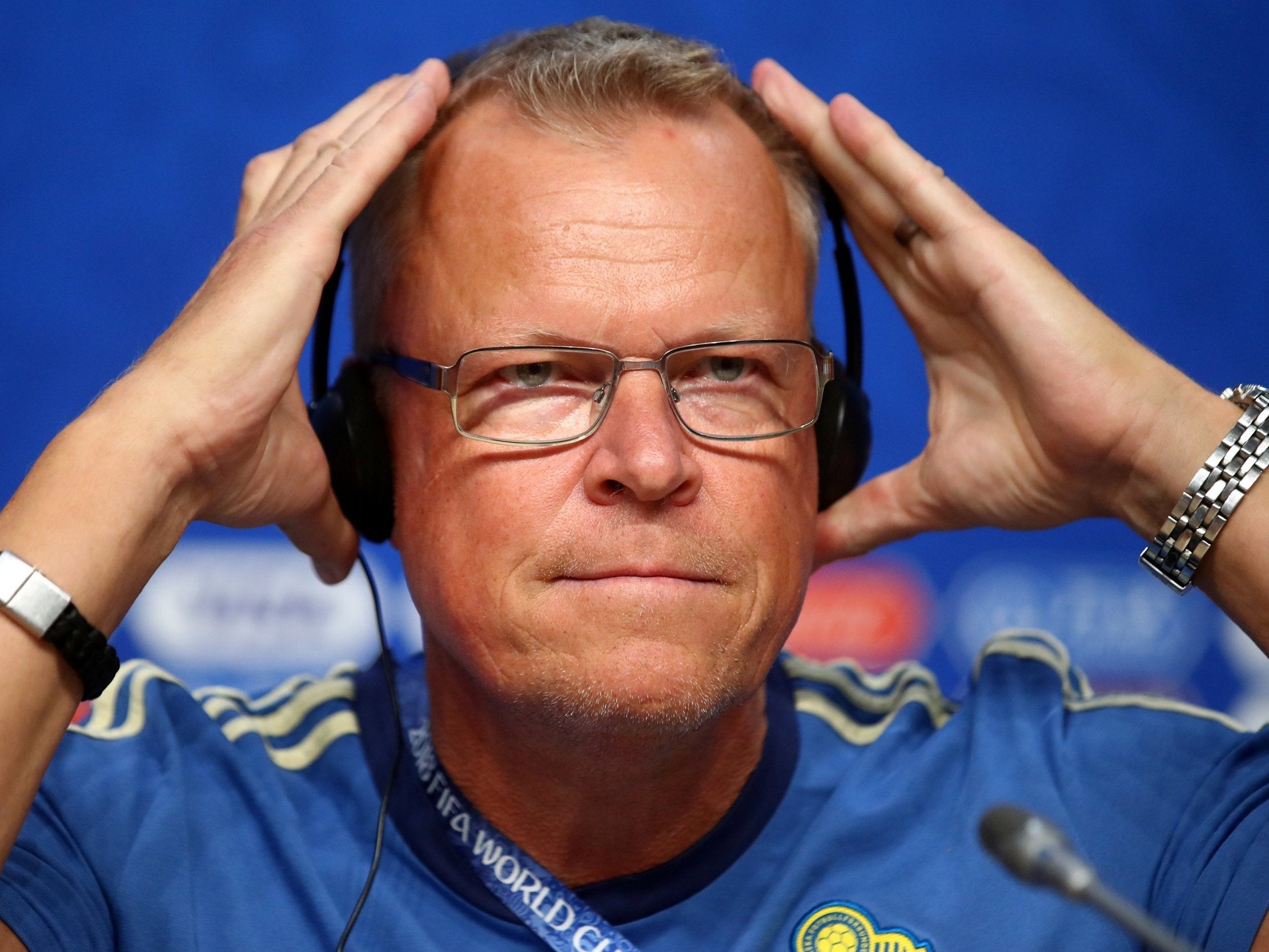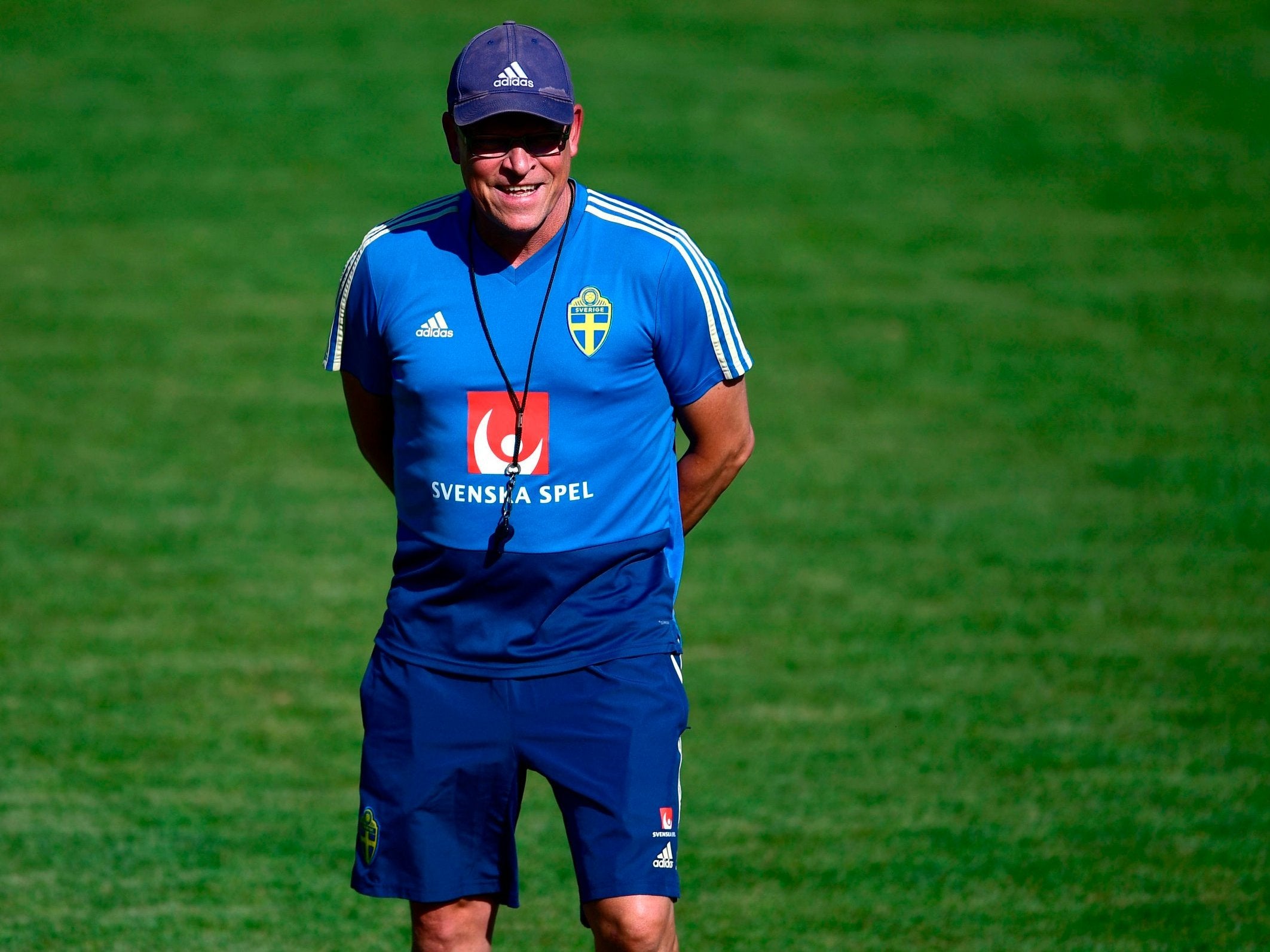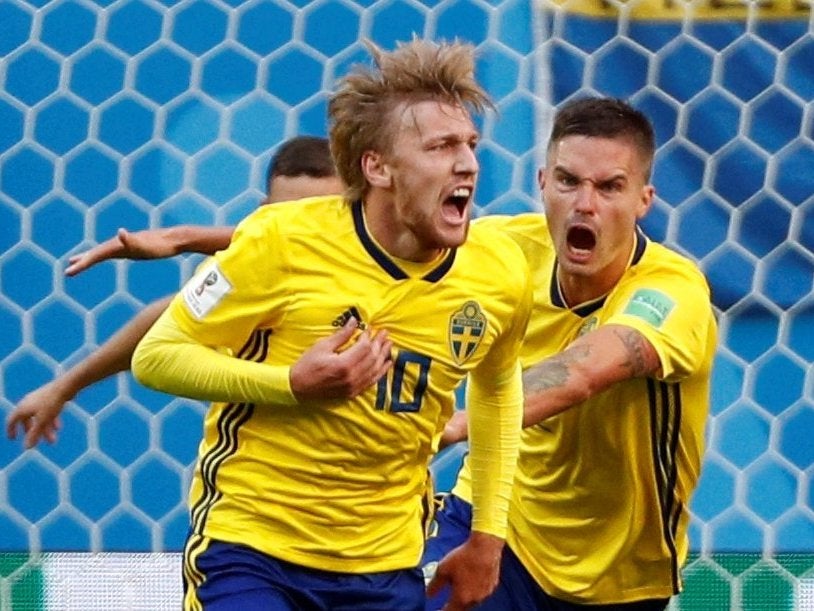World Cup 2018: How Janne Andersson immersed Sweden in a team-first culture to give England plenty to worry about
In Sweden’s post-Ibrahimovic era, unity and support has replaced the blame culture that had dragged the national team down for too many years
On the night before Sweden secured World Cup qualification with a 0-0 draw at the San Siro in Milan, some of the team’s management staff were having one of those idle discussions you do to pass the nervous time before a challenge so momentous, and one figure threw out a question. Would they swap any of their central midfielders for Marco Verratti, for this one game only? There was naturally a lot of debate about it and how it might work but, in the end, all staff members said… “no”.
Not one would have picked Verratti.
That wasn’t out of any superficial show of faith to their own squad, since none of the players were present. It was all about the system. It was all about players properly understanding the system, and the disruptive effect of someone who didn’t coming in for a match like that.
The system ultimately ensured they came through a match like that, and with relative comfort. It is why they could yet make things very uncomfortable for England, and is something that should maybe reframe this entire quarter-final.
Because, when you look through the clubs that this Swedish squad are generally at, it probably provokes the same reaction as when you look through the countries on England’s side of the World Cup draw.
There’s obviously no Zlatan Ibrahimovic any more, which means there’s no one close to Verratti’s profile, just as there’s no one even close to a Uruguay let alone a Brazil or France who could be in the Moscow semi-final.
While it would be a mistake and unfair to say anyone in Gareth Southgate’s staff or squad sees this as an easy route to the semi-final, it would equally be unrealistic not to think this could have been a lot worse for England. Given that – according to Fifa rankings – the four best teams left in Russia are on the other side, this genuinely is as good as it could have got.
Even thinking like that, however, could be a mistake. It might be necessary to look at Sweden the way England would have the German team they could have faced. They have the recent results of a side that Germany should be.

The deposed world champions are after all just one of many big-reputation teams that the Swedes have accounted for over the last year and a half, either by finishing ahead of them to progress, or outright beaten.
The Netherlands can be added to the former, since Sweden finished ahead of them in qualifying, and over that time they’ve also beaten Portugal, Italy, Denmark and France.
That such results have been sustained over such an extended period suggests there is much more to this than an energised mid-tier team enjoying the short-term wave a tournament can bring, in the way that their group rivals Mexico did. Sweden eviscerated the Mexicans and thereby finished ahead of them on top of the group for a reason.
They may well be one of the canniest and best-coached sides in the competition, cleverly maximising their abilities – or rather the system making any deficiencies as irrelevant as possible.
Sweden’s improvement is actually someway like England’s under Gareth Southgate, in that the management staff have taken a very realistic view of the squad’s limitations and built from there while increasing unity, with the dejection of a disappointing Euro 2016 clearing the way to implement so many changes.
The retirement of Ibrahimovic after finishing bottom of their group in France has naturally been seen as a juncture point that released everyone else, but that would also be unfair. What was actually relevant was that retirement was part of a wider number of departures, including Kim Kallstrom and Andreas Isaksson, but most importantly manager Erik Hamren.
After seven years in a job that had seen an increasingly suffocating emphasis on defensive football, Hamren had lost any kind of hold over the team, and there was “a complete breakdown in trust”.

The team often just looked tentative and dysfunctional, with little optimism or enthusiasm about it, and everything had just gone stale.
There is nothing stale about replacement Janne Andersson. He had in 2016 just achieved one of those economics-defying football feats by winning the Swedish league with the relatively underfunded IFK Norrkoping, applying the classic approaches of trusting vibrant youth and an intelligent playing model, but with a sophisticated modern touch. Andersson’s staff – that includes a psychology advisor in Daniel Ekvall – is seen as one of the most forward-thinking in Scandinavia, and he has brought them and all of this alchemic approach to the national team.
Andersson and his team have, like Southgate, focused on a way of playing that ensures any individual quality gap between their side and notionally superior teams is always minimised. That has been done by a tactical approach whereby Sweden’s movement seems to see them shrink all of the available space, and thereby suck the energy out of the opposition until games get very tense. Southgate will of course have researched all of this, but that should serve as particular warning to England given how tensely some of their games have gone; how the side has occasionally run out of ideas.

It is an approach that further serves Sweden because they do lack proper forward quality with just Ola Toivonen and Marcus Berg, although matches that follow this pattern gradually see space released for Emil Forsberg and – flying under the radar a bit, due to injuries that prevented what would have been an inevitable move to a bigger club – the hugely adept Albin Ekdal. This is what happened against Switzerland and Mexico in this World Cup, as well as in the previous wins over France and Portugal.
Sweden have become very good at punishing the greater chaos and lesser assurance that comes later in tight games.
It was fittingly a first performance against one of the big nations in France that initially made everyone fully trust in Andersson’s way. Although that ended in a 2-1 qualifying defeat, there was enough in it for Expressen journalist Noa Bachner to describe it as “the rebirth” of the team after a long wait.
They had shown how much they’d grown by the next time they played France, winning 2-1 at home. By then, they were fully immersed in Andersson’s approach, and it was being fully implemented.

The belief that comes from such results has been further reinforced by developing a studied team atmosphere, and replacing the toxic old “blame culture” with one of unity and support.
It has aided the cohesion, and the spirit, and could be seen in the faith - rather than arrogance - that so many of the players illustrated after beating Switzerland.
“We are so confident in our own game,” Ekdal said, fully echoing the mood of the squad. “We can beat anyone.”
It’s why they wouldn’t take anyone else either, no matter their name. That’s because this is a team - in the fullest description of the word - to be taken very seriously.
Join our commenting forum
Join thought-provoking conversations, follow other Independent readers and see their replies
Comments
Bookmark popover
Removed from bookmarks